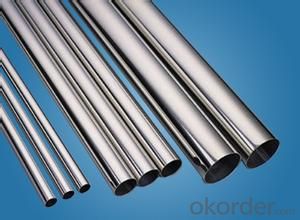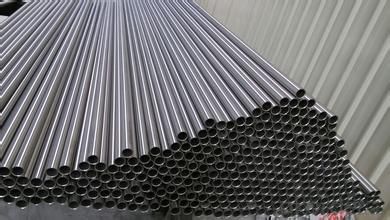Packaging & Delivery
| Packaging Details: | seaworthy wooden case packing or for customer's request |
|---|---|
| Delivery Detail: | 3-10 days |
OKorder Service Pledge
OKorder Financial Service
You Might Also Like
Standard:JIS, AISI, ASTM, GB, DIN, EN
Place of Origin:Tianjin, China (Mainland)
Model Number:304
Type:Welded
Steel Grade:300 Series
Application:decorating,chemical plants,construction industry
Certification:SGS
Thickness:0.08-12.8mm
Outer Diameter:0.25-50.8mm
name:china stainless steel tube
MOQ:33 kgs
material:304
O.D.:0.25-50.8mm
thickness:0.08-12.8mm
Certificate:BV
privilege:Sample cost free for VIP customer
Application:decorating,chemical plants,construction industry
Standard:ASTM,EN,JIS
Experience:20 years
| Packaging Details: | seaworthy wooden case packing or for customer's request |
|---|---|
| Delivery Detail: | 3-10 days |
1. WT: 0.08-12.8mm
2. OD: 0.25-50.8mm
3. MOQ: 21 kgs
4. Sample cost free for VIP customer
FAQ of Stainless Pipe
①How is the quality of your products?
Our products are manufactured strictly according to national and internaional standard, and we take a test
on every pipe before delivered out. If you want see our quality certifications and all kinds of testing report, please just ask us for it.
Guaranteed: If products’ quality don’t accord to discription as we give or the promise before you place order, we promise 100% refund.
②How about price?
Yes, we are factory and be able to give you lowest price below market one, and we have a policy that “ for saving time and absolutely honest business attitude, we quote as lowest as possible for any customer, and discount can be given according to quantity”,if you like bargain and factory price is not low enough as you think, just don’t waste your time.Please trust the quotation we would give you, it is professional one.
③Why should you chose us?
Chose happens because of quality, then price, We can give you both.Additionally, we can also offer professional products inquiry, products knowledge train(for agents), smooth goods delivery, exellent customer solution proposals.Our service formula: good quality+good price+good service=customer’s trust
SGS test is available, customer inspection before shipping is welcome, third party inspection is no problem.
Any question, pls feel free to contact us !
Stainless Pipe Images


Send your message to us
OKorder Service Pledge
OKorder Financial Service
Similar products
Hot products
Hot Searches
Related keywords